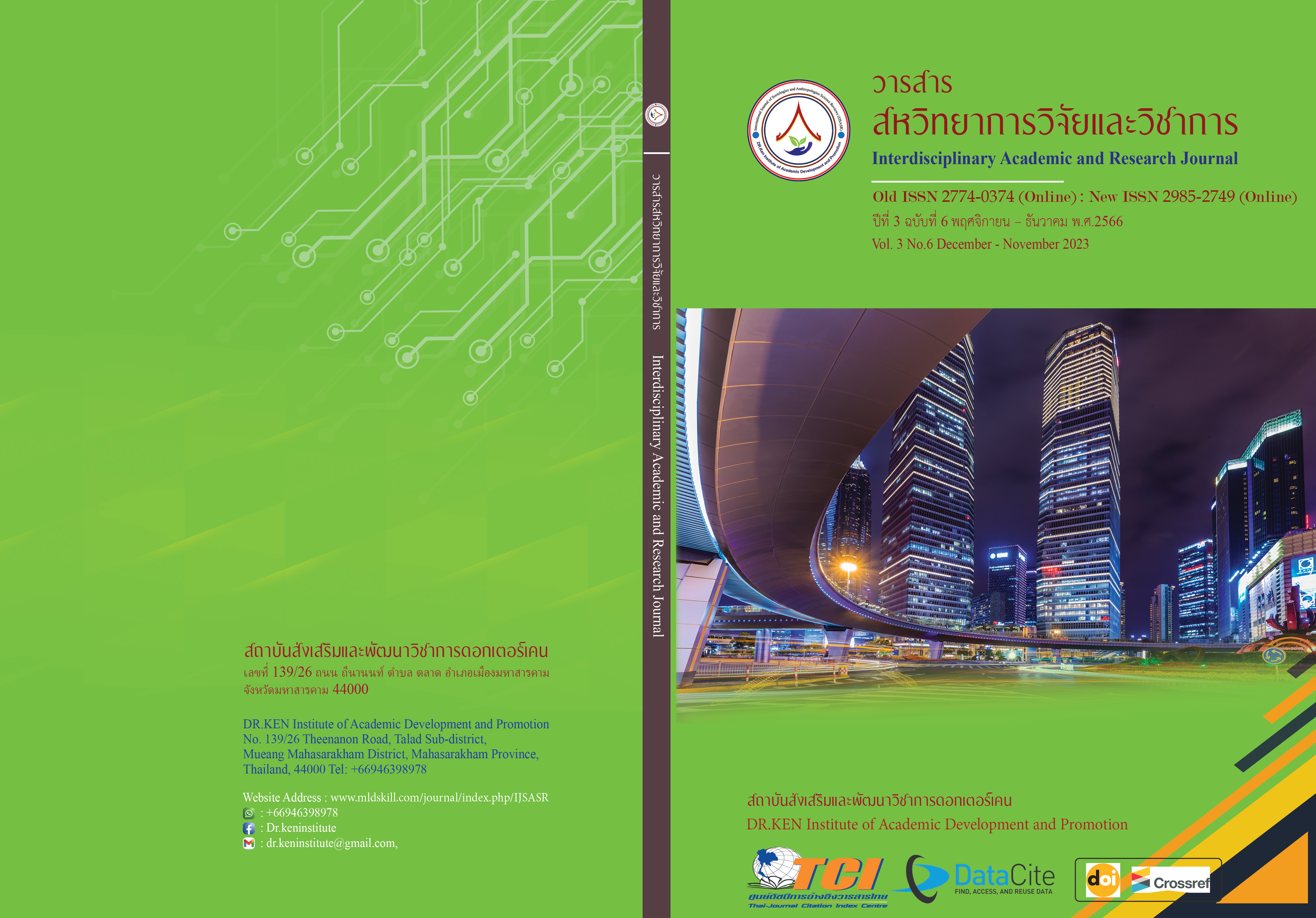The Analysis of Factors Affecting Consumer’s Decision to Choose Gas Stations in Chiangmai Province
DOI:
https://doi.org/10.60027/iarj.2023.271806Keywords:
Gas Station; , Type of Car; , Marketing FactorsAbstract
Background and Aims: Thailand has fiercer business competition in every industry. Including the gas station business with a variety of foreign brands in the past, gas stations were only for adding gas. But nowadays gas stations offer a wider variety of services. There is a wide variety of qualities and services to choose from, so the main objectives of this study were: (1) to analyze factors affecting the selection of gas stations in Chiang Mai by means of Multinomial Logistic Regression; (2) to analyze the trend of consumers choosing to use gas stations in Chiang Mai.
Methodology: Using a sample of 400 people in Chiang Mai, male and female. The sample size was determined using Cochran's formula for calculating the sample. In the event that the population is unknown at the 95% confidence level by random coincidence. In this study, the general characteristics of the respondents were analyzed, namely age, education level, occupation, income level, and vehicle type. car owner fuel cost per month the gas stations that consumers choose to use frequency of refueling characteristics of refueling regularly added oil The consumer's oil purchase decision process and marketing factors affect consumers' decision to buy oil. and the expectations of consumers from choosing to use the services of gas stations. In surveying decision-making information on satisfaction toward services in 7 aspects: product, price (Price), location, service channel (Place), marketing promotion (Promotion), Employees who provide service (People), physical and service model (Physical Evidence) and service process (Process).
Results: Satisfaction with the service is the most important thing for gas stations. And the second most important thing is in providing services. that has standards and is safe. The last thing is that employees dress cleanly and politely, giving consumers confidence in choosing the gas station business from these factors.
Conclusion: Satisfaction with service is the most important thing for a gas station. Followed by providing standard and safe services. And the last factor is the clean and polite dress of the employees. All of these play an important role in building consumer confidence in choosing services from gas stations.
References
กระทรวงพลังงาน. 2558. แผนยุทธศาสตร์สำนักงานนโยบายและแผนพลังงาน พ.ศ. 2555-2558. Retrieved on 19 September 2022 from: http://www.eppo.go.th.
ณัฐพัฒน์ กว้างศิริพร. 2562. ปัจจัยที่ส่งผลต่อการตัดสินใจใช้บริการสถานีบริการน้ำมัน ปตท. ในจังหวัดสมุทรปราการ. ปทุมธานี: มหาวิทยาลัยกรุงเทพ.
ธนานันต์ พลายน้อย. 2545. ปัจจัยกำหนดราคาน้ำมันเบนซินในประเทศไทย. กรุงเทพฯ:มหาวิทยาลัยรามคําแหง.
ธีรวุฒิ เอกะกุล. (2543). ระเบียบวิธีวิจัยทางพฤติกรรมศาสตร์และสังคมศาสตร์. อุบลราชธานี: สถาบันราชภัฏอุบลราชธานี.
พรพิมล ศรีประเสริฐรัตน์. 2549. ผลกระทบของการเปลี่ยนแปลงราคาน้ำมันต่อต้นทุนการผลิตภาคอุตสาหกรรมของไทย. กรุงเทพฯ. มหาวิทยาลัยธุรกิจบัณฑิตย์.
สิรวิชญ์ แป้นชีวิต. (2562). การตัดสินใจเลือกใช้สถานีบริการน้ำมัน ปตท. ของผู้บริโภค ในเขตกรุงเทพมหานคร.สาขาวิชาการจัดการ คณะบริหารธุรกิจ มหาวิทยาลัยรามคำแหง
Bitner, M. J. (1992). Servicescapes: The impact of physical surroundings on customers and employees. Journal of Marketing, 56(2), 57-71.
Cochran, W.G. (1977). Sampling Techniques. 3rd Edition, John Wiley & Sons, New York.
Gronroos, C. (2001). Service management and marketing: A customer relationship management approach. Chichester, UK: John Wiley & Sons.
Parasuraman, A., Zeithaml, V. A., & Berry, L. L. (1985). A conceptual model of service quality and its implications for future research. Journal of Marketing, 49(4), 41-50.
Zeithaml, V. A., Berry, L. L., & Parasuraman, A. (1996). The behavioral consequences of service quality. Journal of Marketing, 60(2), 31-46.
Downloads
Published
How to Cite
Issue
Section
License
Copyright (c) 2023 Praewpannarai Wannarangsri

This work is licensed under a Creative Commons Attribution-NonCommercial-NoDerivatives 4.0 International License.
Copyright on any article in the Interdisciplinary Academic and Research Journal is retained by the author(s) under the under the Creative Commons Attribution-NonCommercial-NoDerivatives 4.0 International License. Permission to use text, content, images, etc. of publication. Any user to read, download, copy, distribute, print, search, or link to the full texts of articles, crawl them for indexing, pass them as data to software, or use them for any other lawful purpose. But do not use it for commercial use or with the intent to benefit any business.
















.png)


